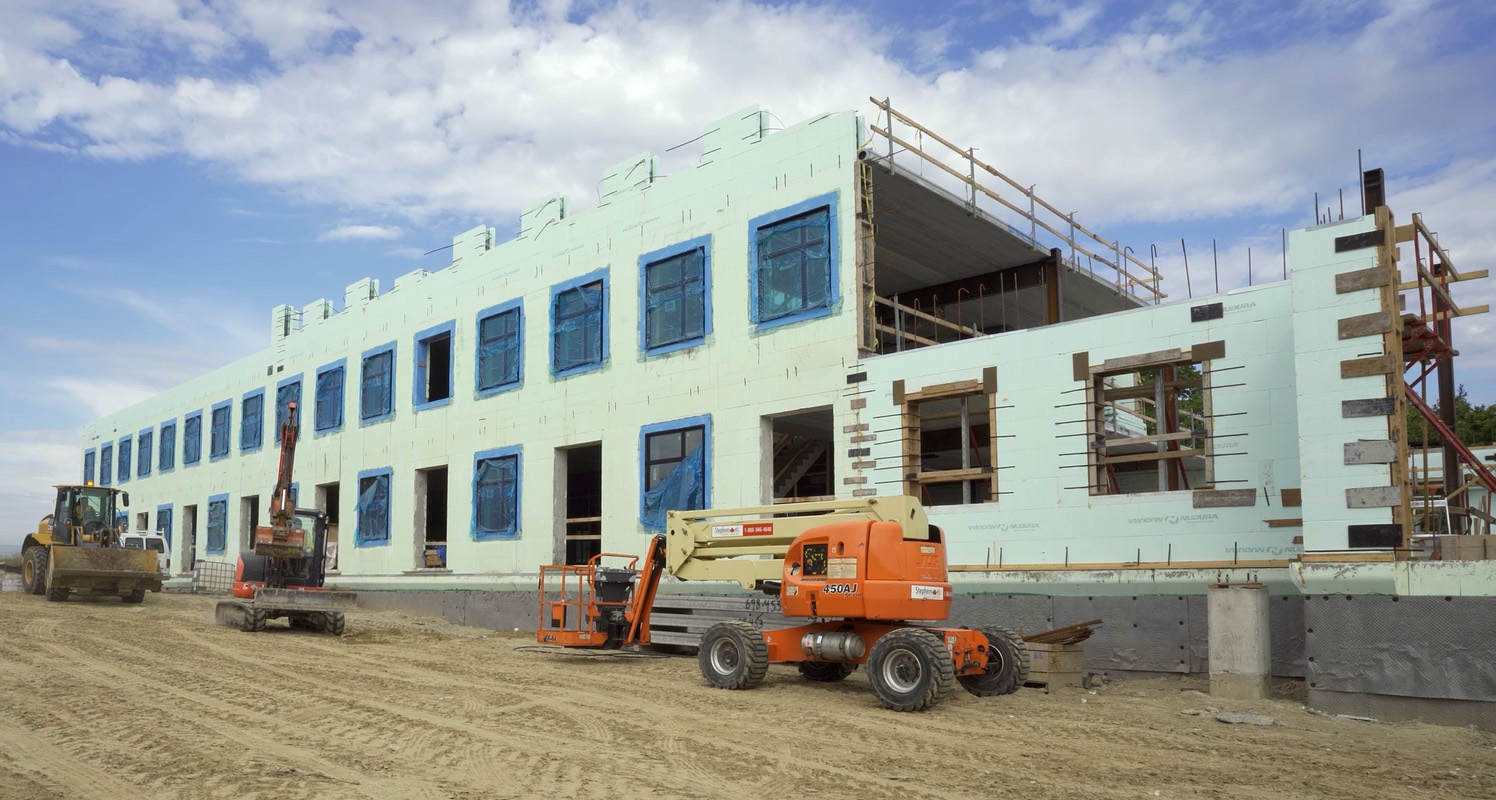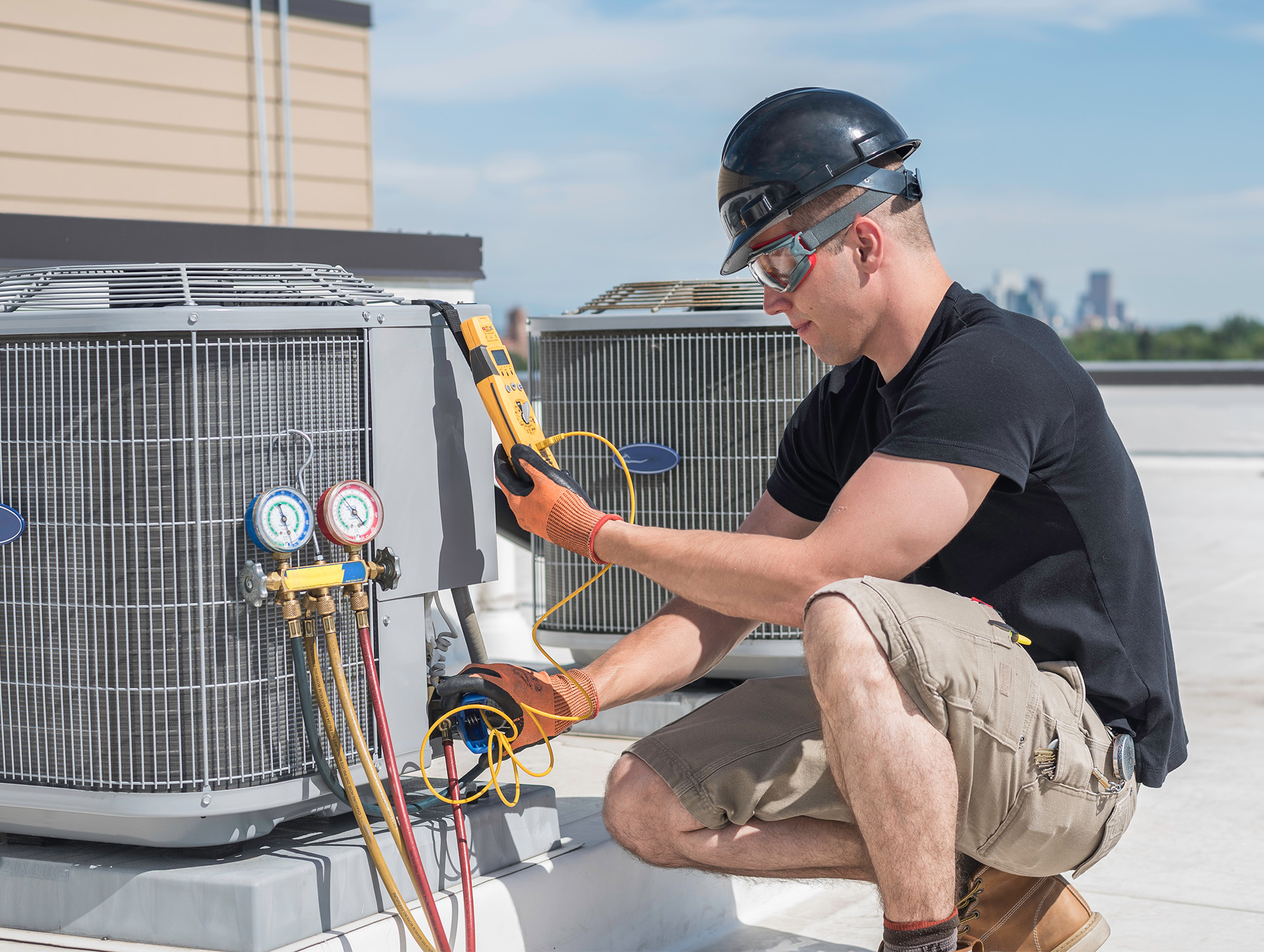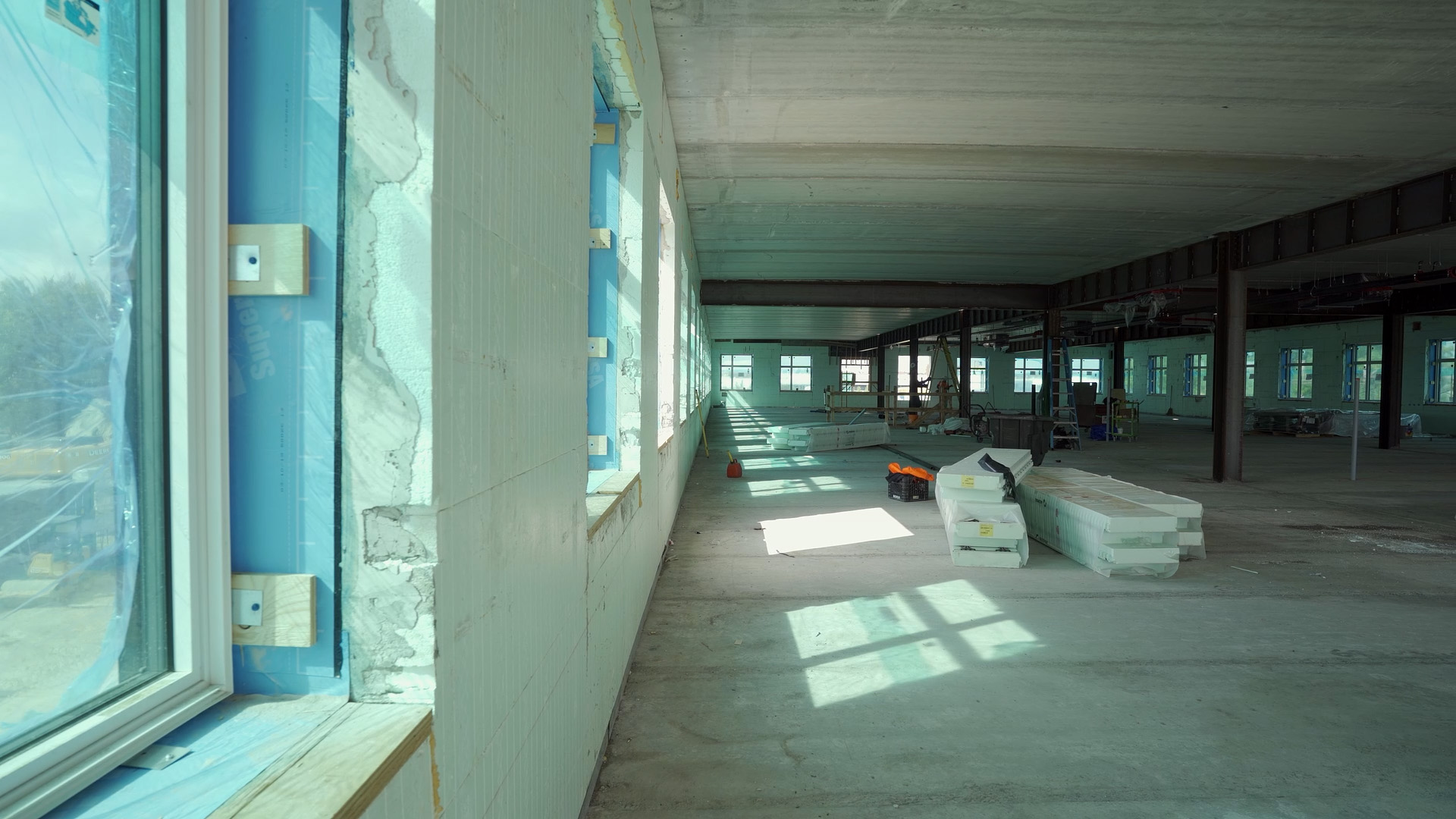
- Products
- Why Nudura
- Nudura Project Applications
- Training Academy
- Resources
- Company
Insulated concrete form (ICF) construction enables incredible design versatility, with the blocks available in a variety of shapes and sizes, making them suitable for framing any style of building, from classic to contemporary, commercial to residential, and then finished with any cladding material.
But buildings constructed with ICFs are also some of the most energy-efficient structures. With two layers of insulation on either side of the solid concrete wall, a standard-thickness ICF assembly is rated at R-23.59, with options available to achieve up to R-50. The continuous insulation creates an air-tight building envelope that eliminates the thermal bridging commonly associated with wood framing. This insulating power, combined with the thermal mass of the concrete, helps ICF walls regulate the interior temperature and reduce hot and cold drafts.
It all adds up to a building that consumes almost 60 percent less energy for heating and cooling than wood-framed structures. This makes ICF construction the perfect solution for net-zero, zero-energy and passive house projects, while also earning LEED credits for energy performance, recycled components and indoor air quality.
HVAC Considerations

With best-in-class energy efficiency ratings, it should come as no surprise that ICF buildings will have unique HVAC considerations. The air-tight, highly insulated structure will thrive with smaller-sized heating and cooling equipment, which will not need to run as frequently to maintain a comfortable interior temperature.
An engineer can determine the precise HVAC needs based on the project specifications. Selecting high-efficiency mechanical systems will only improve the building’s overall performance and provide long-term energy and cost savings. Heat pumps or in-floor radiant heating are great options for these buildings, particularly if they’re installed in a zoned system, so heating or cooling is only called for in the rooms or offices where it’s required.
Owners will be pleased to know that selecting ICFs for their building construction will lead to significantly reduced utility bills for the life of the structure.
Healthy Walls
Your clients will also appreciate the improved indoor air quality with an ICF building. Nudura ICFs contain no volatile organic compounds (VOCs) so there’s no off-gassing during construction or occupancy. The forms and concrete are also moisture-resistant and inorganic, minimizing issues with mold during the lifespan of the building like wood-framed structures are prone to.
While you might not initially think of the durability of a structure in terms of sustainability, the longer a building lasts, the fewer new materials are needed to maintain or replace it.
ICF buildings are nearly indestructible, capable of withstanding winds up to 250 mph (400 km/h), which is equivalent to an F4 tornado. Tests have proved they are impervious to damage from the impacts of projectiles including machine gun bullets and lumber fired from a cannon.
With their energy efficiency, health benefits, and robustness, ICFs are the most durable – and therefore sustainable – construction method on the market.
CONTACT US
We’re committed to supporting homeowners and design professionals who are interested in or use our products. We’re always happy to help and provide more information.





